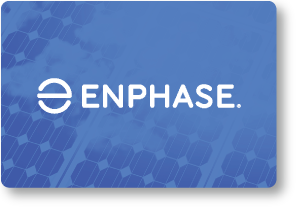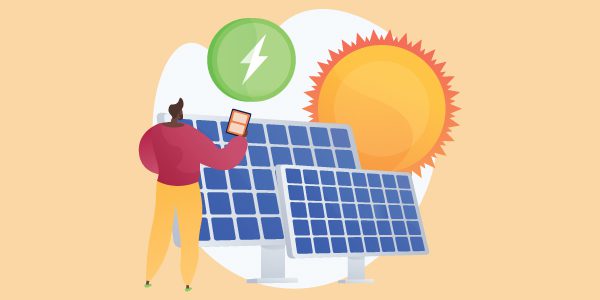In an era defined by rapid technological advancement and growing environmental concerns, the focus on renewable energy sources has never been more intense. Among these sources, solar energy stands out as a true champion, offering both promising advantages and significant disadvantages. As the world seeks sustainable solutions to power our future, understanding the pros and cons of solar energy becomes essential.
First and foremost, why solar energy? As a clean, renewable source of power, solar energy has the potential to revolutionise the way we power our homes and businesses. This renewable energy source has garnered immense attention in recent years due to its potential to combat climate change and reduce our dependence on fossil fuels. In this article, we will explore the advantages and disadvantages of solar energy, shedding light on its role in the transition to sustainable power sources.
Advantages of Solar Energy
- Clean and Environmentally Friendly: Solar energy is one of the cleanest sources of power available, notable for its eco-friendliness. By harnessing sunlight to generate electricity, relying solely on a virtually limitless supply – our sun, solar energy systems produce no greenhouse gas emissions, air pollutants, or harmful waste disposal, significantly reducing our carbon footprint and helping combat climate change by creating a cleaner environment. Thus making solar energy a sustainable and renewable option for long term.
- Lower Costs: Solar energy systems have not only minimal maintenance requirements, but also reduce electricity bills significantly. With no moving parts, the risk of mechanical failure is low, and regular cleaning and occasional checks are usually sufficient to keep them running efficiently. On the other hand, installing solar panels on residential or commercial properties can lead to substantial savings on electricity bills. Once the initial cost is covered, the energy generated from the sun is essentially free, reducing the reliance on traditional grid electricity which results in substantial long-term cost savings for both homeowners and businesses.
- Grid and Energy Independence: Solar power grants individuals and communities energy independence. By integrating energy storage solutions such as batteries, solar-powered homes or businesses, even remote areas, can become partially or entirely independent from the main power grid, enhancing energy security. This is particularly advantageous during power outages or in regions with unreliable, expensive, or challenging grid infrastructure.
- Job Creation and Economic Boost: The rapid and significant growth of the solar energy sector has not only led to job creation opportunities across various skill levels but also economic development in many countries as the demand for solar technologies increases. From research and development to manufacturing, installation, and maintenance, the solar industry had become a significant contributor to global employment.
- Technological Advancements: Advances in solar technology continue to enhance the efficiency and affordability of solar panels. Innovations such as thin-film solar cells, improved energy storage solutions, and increased panel efficiency are pushing the boundaries of solar energy production, making it more widespread adoptable.
Disadvantages of Solar Energy
- Intermittent Energy Source: One of the most significant drawbacks of solar energy is its intermittency and weather dependence. Solar power generation depends on sunlight, which is not constant throughout the day or in all weather conditions. This limitation necessitates energy storage solutions, like batteries, to ensure a stable power supply and grid electricity back up during cloudy days and at night.
- High Initial Cost: While the long-term operational costs of solar energy are low, the initial investment and upfront cost required for purchasing and installing solar panels can be substantial. This financial barrier can deter some individuals and businesses from adopting solar energy, especially in regions with lower incentives or subsidies from the government. However, it’s essential to consider the long-term savings and benefits that solar energy offers.
- Land Use Concerns – Space Requirements: Large-scale solar farms require substantial land areas to generate significant power output, which can raise concerns about habitat disruption and competition with other land uses. This especially in densely populated areas where open spaces are limited. Balancing the need for renewable energy expansion with environmental preservation becomes a complex challenge.
- Aesthetic Impact: Solar panels can alter the aesthetic appeal of buildings and landscapes. Some individuals may find the appearance of solar panels less visually appealing or incompatible with the architectural style of their homes, leading to resistance in adopting solar energy, especially in certain neighbourhoods or historical areas.
- Energy Storage Challenges: Storing excess energy generated during sunny periods of use during cloudy days or nighttime remains a technical challenge. Although battery technology is advancing, efficient and cost-effective energy storage solutions on a large scale are still under development and involve additional costs and environmental considerations.
In conclusion, solar energy offers a multitude of benefits that align with our pursuit of sustainable and cleaner energy sources, contributing significantly to our efforts in combating climate change and reducing greenhouse gas emissions. It offers a wealth of advantages as a sustainable and clean power source with its renewable nature, low operating costs, its environmental friendliness, potential for energy and grid independence, and job creation opportunities. Positioning it as a cornerstone of the renewable energy landscape and making it a compelling choice for a greener future.
However, it is essential to acknowledge the challenges of the intermittent nature of sunlight, high initial costs, energy storage limitations, and various practical obstacles as they highlight the need for ongoing technological innovation and strategic planning. As we continue to strive for a greener future, addressing the disadvantages of solar energy through advancements in energy storage, regulatory support, and public awareness will play a pivotal role in maximising its potential and minimising its limitations.
By continuing to invest in solar technologies, promoting research and development, and supporting policies that encourage solar adoption, we can move forward in a sustainable way. Recognising both the advantages and disadvantages of solar energy will make us able to construct informed decisions that lead us toward a more sustainable energy paradigm. Ultimately, solar energy holds the key to a more sustainable and environmentally friendly energy landscape, playing a leading role in our journey towards a cleaner and brighter tomorrow.












